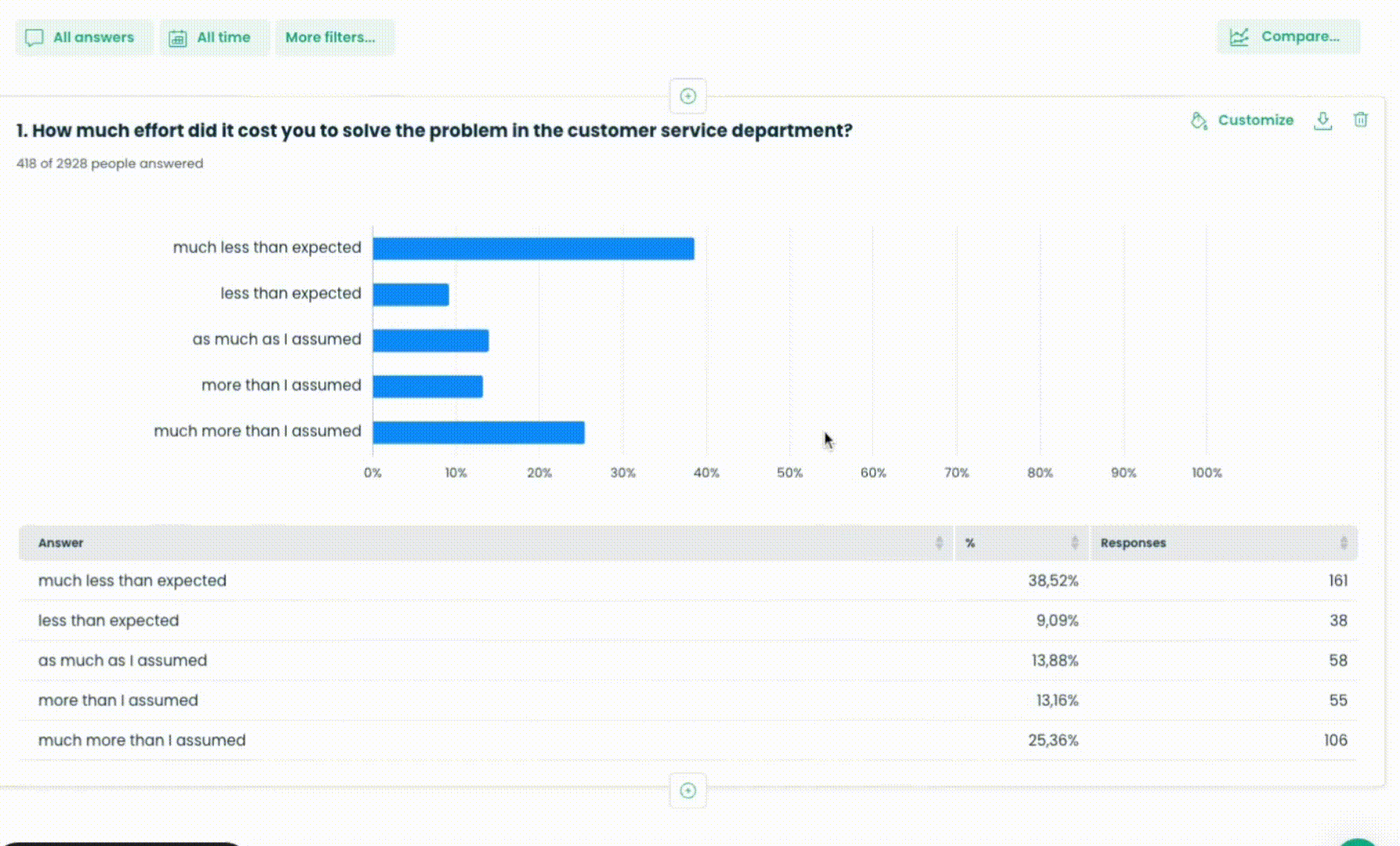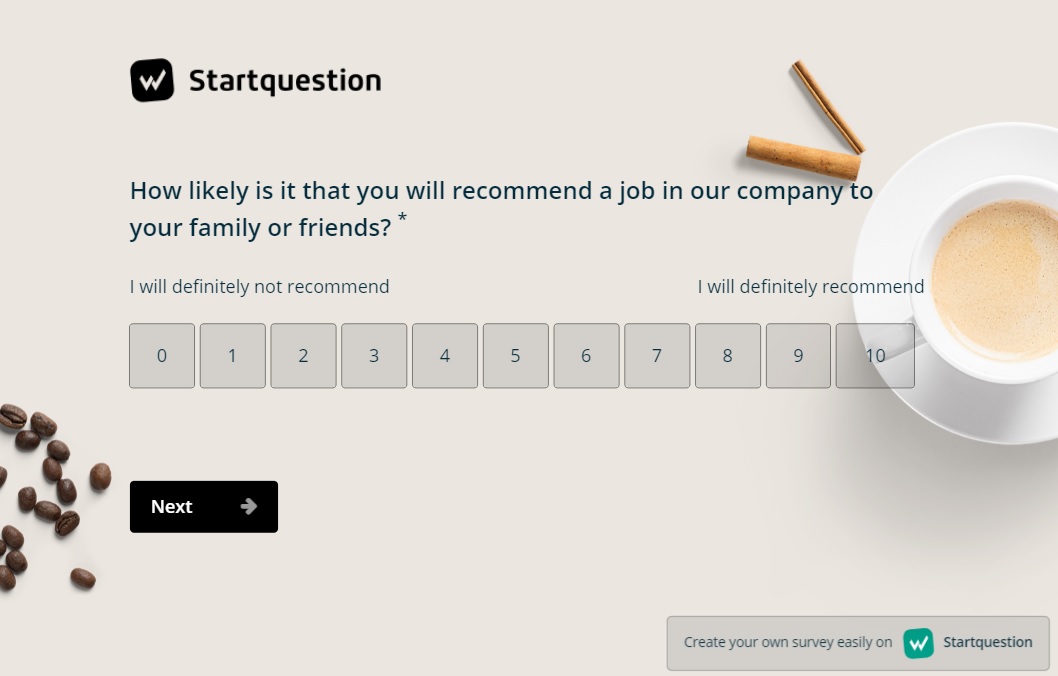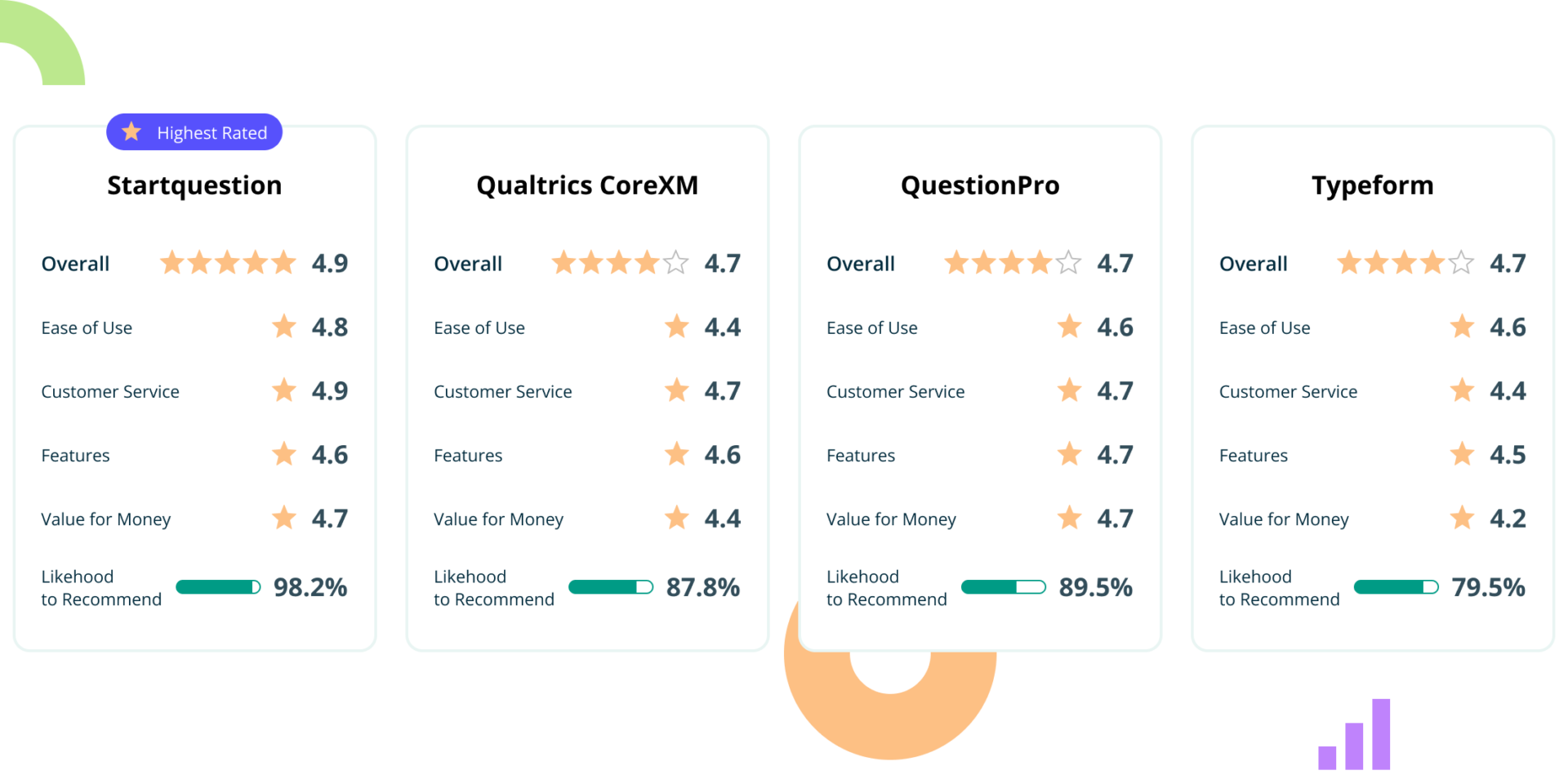Great organizations are built on the foundation of effective leadership. It sets the tone for success, provides direction, and ensures the company’s vision is brought to life. That’s why choosing the right leaders is crucial. During the recruitment phase for managerial positions, especially those that involve people management, we can evaluate and select individuals with the skills and qualities required for effective leadership.
This article will explore the significance of asking the right questions during this critical process and delve into leadership survey questions from employee and management perspectives. We will also discuss the design of a good leadership style survey and provide you with the examples of survey questions to consider and tips how to conduct leadership surveys.
Two Aspects of Recruitment for Leadership Positions
Recruiting leaders in an organization can be done by searching for suitable candidates externally or selecting the right person within the company by promoting the optimal employee.
The first method requires recruiters to have excellent candidate identification skills for a managerial role. They need to consider not only technical skills related to a specific position (e.g., programming languages for developers) but also soft leadership skills such as relationship-building, team management, and developing subordinates.
Click to view your survey template
Employee engagement survey and much more – try our free HR templates!
Promoting candidates within the company is comparatively more accessible, as the future leader is usually created naturally based on employee engagement and achievements. They perform their duties well, have charisma, and work well with the team. However, it is critical to consider not only the candidate’s skills and motivations but also the opinions, constructive feedback, and expectations of their future mentees.
In the following sections, we will discuss both approaches to recruiting managers.
Evaluating Your Leaders – Why Should You Ask Proper Questions?
It is important to evaluate future leaders’ potential, which begins by asking the right questions during the recruitment process.
A well-structured leadership survey is essential to identify individuals better suited for managerial roles, particularly those requiring people management skills. These surveys are designed to assess the candidates’ leadership potential and effectiveness.
Let’s delve deeper into why this step is so meaningful. Here are four types of questionnaires that will help you make the right hiring decisions.
Screening for Effective Leadership
Effective leadership is about guiding, motivating, and managing each team member to achieve common goals. Leaders set the tone for an organization, and their actions can have a significant impact on employee morale, productivity, and overall success. Therefore, it is paramount to identify candidates with the potential to be influential leaders from the outset.
Style of Leadership Survey
One way to identify leadership qualities is by implementing a proper survey during the recruitment process. A style of leadership questionnaire helps in understanding a candidate’s working style, values, and principles. It enables organizations to evaluate whether a candidate’s leadership approach aligns with the company’s culture and values.
Leadership Assessment Survey
A leadership assessment survey goes a step further by probing into the practical aspects of leadership. It evaluates a candidate’s leadership qualities, such as communication skills, conflict resolution, decision-making, and the ability to inspire and motivate their team. The results from this type of survey can provide valuable insights into a candidate’s potential to be an effective leader.
Questions to Senior Management
Good leadership is about managing subordinates and collaborating with peers and superiors. Therefore, questions for senior leadership during the recruitment process are equally important. Asking the right questions can help identify candidates who possess leadership qualities and interact effectively with senior management team, which is crucial for organizational success.
Supervisor Feedback Survey
Collect employee feedback to make sure that cooperation and relations with supervisors are evaluated positively in your company.
Supervisor Feedback Survey
Collect employee feedback to make sure that cooperation and relations with supervisors are evaluated positively in your company.
Leadership Survey from Employees Perspective
It’s essential to recognize that leadership effectiveness is not one-sided. Aside from scrutinizing leaders, organizations can gain valuable insights by comprehending how their employees perceive leadership and supervisors.
Prepare Leadership Survey Questions for Employees
When it comes to evaluating leadership from an employee’s perspective, surveys play an essential role.
These questionnaires typically assess how well a leader performs in various areas, such as their effectiveness, willingness to listen to employee input, and the degree of autonomy and initiative they allow their team members.
Collecting employee feedback through such surveys can greatly benefit leaders in improving their effectiveness. The feedback provides valuable insights into where leaders excel and where they need to focus on improving.
How to Design a Good Leadership Style Survey?
Creating a powerful leadership survey is the first step toward unlocking a world of talent. By implementing the best practices in survey design, you can unleash the full potential of your recruitment process.
Have a Clear Goal
Start by defining the purpose of your leadership survey. What specific information are you trying to gather, and how will you use it? Having a clear goal will guide the design and analysis of the survey responses.
Remember about Optional Questions
Offering optional questions can provide candidates with an opportunity to elaborate on their responses, allowing for a more comprehensive understanding of their leadership style, self assessment, and capabilities.
Avoid Leading Questions
Ensure that your employee survey questions are neutral and unbiased. Leading questions can skew the results and provide inaccurate insights into a candidate’s leadership potential.
Use Branching Logic
Utilize branching logic to tailor the survey based on a candidate’s responses. This ensures that candidates only answer questions relevant to their experience and skills.
Analyze Survey Data
Once you have collected survey responses, it’s crucial to analyze the data effectively. Identify patterns and trends to make informed decisions about candidate selection.

Examples of Leadership Survey Questions
To assist you in creating your leadership survey, here are twenty sample questions you may consider incorporating.
What to Ask in a Leadership Assessment Questionnaire
To determine whether a candidate is suited to a managerial position, it’s vital to ask comprehensive questions that assess their leadership abilities, approaches, and problem-solving skills. By doing so, we can discover the best leaders who will guide and inspire their teams toward success.
The Top 10 Examples of Leadership Survey Questions
How do you motivate your team?
- This question assesses a leader’s ability to inspire and drive their team to achieve goals.
How do you handle conflict on your team?
- Conflict resolution is a critical leadership skill. This question evaluates a leader’s effectiveness in managing disagreements and maintaining team harmony.
How do you delegate tasks and responsibilities?
- Effective delegation is key to productivity. This question examines a leader’s delegation skills and trust in their team members.
What’s your leadership style?
- Understanding a leader’s style is essential. This question can help identify whether a leader is more authoritarian, democratic, or transformational in their approach.
How do you foster a collaborative and inclusive team environment?
- Leadership extends beyond individual accomplishments; it involves cultivating a team culture. This question assesses a leader’s commitment to fostering collaboration, inclusion, and diversity within their team, crucial elements for a thriving workplace.

Can you provide an example of a challenging decision you had to make as a leader and the outcomes of that decision?
- Effective leaders are adept decision-makers. This question invites leaders to reflect on their decision-making process and outcomes, shedding light on their ability to navigate challenges and learn from experiences.
How do you prioritize and manage time to meet both short-term and long-term goals?
- Time management is a fundamental skill for leaders. This question delves into a leader’s organizational abilities, assessing their capacity to balance immediate tasks with long-term strategic objectives.
In what ways do you encourage professional development and continuous learning within your team?
- A leader’s role extends to the growth and development of their team members. This question explores a leader’s commitment to fostering a culture of continuous learning, skill development, and career advancement.
How do you handle feedback, both positive and constructive, from your team?
- Leadership involves a constant feedback loop. This question gauges a leader’s receptiveness to feedback, an important aspect of self-awareness and the ability to adapt and grow as a leader.
Describe a situation where you had to lead your team through a period of change. How did you manage resistance, and what were the results?
- Change is inevitable in any organization, and leaders play a pivotal role in guiding their teams through transitions. This question explores a leader’s change management skills, including their ability to address resistance and steer the team toward positive outcomes.

Survey Tool to Measure Management Effectiveness
At the recruitment stage, organizations have the unique opportunity to sift through the pool of candidates and identify those who possess the qualities and potential for effective leadership.
To ensure that you make the right choices, consider implementing a style of leadership survey or a leadership assessment survey tailored to your organization’s needs.
Professional survey tools in the hands of HR specialists can help you with:
- Identifying Leadership Potential
- Better Cultural Fit (of Managers)
- Mitigating Leadership Missteps
- Reducing Turnover
- Saving Time and Resources
Hiring the right people is the key to effective leadership and the foundation of a thriving organization. Without the right team, even the best leaders can struggle to succeed. Invest in your company’s future by prioritizing hiring decisions and building a group of talented individuals who share your vision.
Ready to conduct an effective leadership survey?








